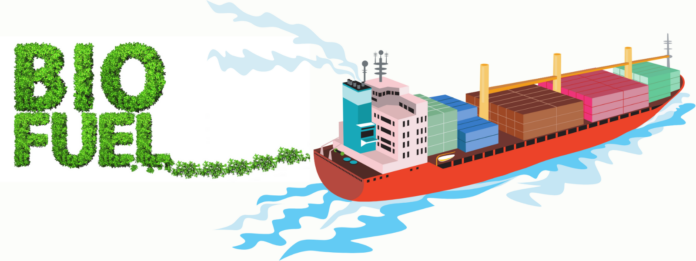5 Ways Biofuels Impact the Shipping Industry
Consider how many people engage with e-commerce or send gifts to faraway friends. The shipping sector is under unprecedented stress from consumers with increased demand. Regulatory agencies are also issuing enormous pressures to become more eco-friendly. The best way to do that is by eliminating dependence on fossil fuels — through alternatives like biofuels. What are biofuels, and are they a viable answer to the shipping industry’s woes?
What Are Biofuels?
Biofuels are alternative fuel sources for all vehicles, including commercial and personal vehicles, ships, airplanes, trains and any other medium- or large-duty vessels. These fuels are renewable and originate from plants.
Grown materials used to make these fuels are called feedstocks. The energy sector chooses fast-growing options like switchgrass and turns them into usable fuels with microbes and complex industrial processes.
However, biofuels don’t include all sustainable energy options, such as hydropower or solar power, because these don’t come from biological sources. The shipping industry’s climate-friendly future will likely incorporate a mixture of these sustainable energy sources with biofuels.
Shippers primarily leverage diesel. However, other prospective options are available for companies to adopt instead of polluting the planet with fossil fuels:
> Biodiesel: Fuel made from oils, grease and animal fats
> Ethanol: Corn grain-based fuel frequently cut with gasoline, making it only partially sustainable
> Renewable diesel and gasoline: Plant-based oils processed to perform like fossil fuels
> Biobutanol: Corn grain-based fuel like ethanol, but with all-biological feedstocks
> Dimethyl ether: Synthetic gas made from biomass or fossil fuel feedstocks that operates like propane
> Methanol: Wood alcohol that performs like ethanol
These options are available on the market with varying degrees of research backing their viability. Let’s explore how corporations are using these alternatives.
What Does Widespread Adoption Look Like?
How are shippers adapting and changing operations to better support biofuels? Unfortunately, biofuel adoption isn’t happening as fast as the planet needs. Marine shipping is a powerful indicator of how well other modes of transportation will transition. Success comes down to long-term pricing and scaling. For companies to get on board, they need a 42% increase in biofuel capacity based on how many feedstocks are currently available.
Capacity will also coincide with price reductions, which inevitably happen as new technologies become more mainstream. Constantly rising fuel costs are a bane in the shipping industry, making operational expenses chaotic and hard to regulate. If corporations combine many tactics to support cost-effectiveness and regulatory expansion, biofuel adoption could happen faster.
Widespread adoption of biofuels will increase awareness of more cost-saving options for shipping vessels, including route optimization and tech integration. Another creative solution for last-mile shipping is using autonomous delivery robots powered by biofuels to boost carbon savings.
How Are Biofuels Impacting Shipping?
Shippers transitioning to biofuels should get excited — many benefits are on the way.
1. Lower Production Costs
Biofuels can be grown domestically, with federal incentives and tax credits to make them an even smarter financial choice. Alternatives like methanol are cheaper than fossil fuels and even some bio-based options.
2. Improved Safety
Diesel, gasoline, natural gas and other conventional fuels are highly flammable. Plant feedstocks provide less flammability, making working conditions safer for operators. Fewer people may endure workplace injuries from unintended combustion.
3. Boosted Energy Security
Fossil fuels are finite, and competition to acquire them is sometimes too steep to justify. Renewable biofuels permit companies to feel secure that their resources won’t run dry. Carbon-based feedstocks are theoretically infinite.
Additionally, options like biobutanol have higher energy concentrations. Biobutanol has 25% more power than ethanol, offering more fuel-efficiency to vehicles and making a smaller quantity of the fuel more valuable.
4. Reducing Emissions
Petroleum-based fuels emit greenhouse gases with nothing to mitigate them. In contrast, crowing biomass expands the world’s carbon capture potential. Plants absorb carbon, providing a net-zero solution to offset emissions from creating biofuels.
Additionally, legislation is holding biofuels accountable. The Energy Independence and Security Act has stated that biodiesel and other biofuels must reduce emissions by 50% compared to fossil fuels.
5. Expanding Infrastructure and Engine Accessibility
Biofuels can be mixed with traditional fuels so that existing engine types and infrastructure can incorporate these new fuels without making significant modifications right away. Biofuel refueling stations also make strides in offering dedicated alternative fuel infrastructure. Additionally, biofuels such as E85 can be used in flexible fuel vehicles to increase the range of vehicle options open to consumers.
Plants in the Gas Tank
Many decades ago, most people wouldn’t have conceived that organic matter could power massive barges and trucks, but it’s happening. If companies don’t switch to this emerging fuel type, they sacrifice gaining the benefits of early adoption or could face legal repercussions for not following legislation. Shippers must adopt biofuels as fast as possible to stay ahead of the competitive and regulatory curve. Most importantly, biofuels help protect the planet so that people and industries can keep shipping without guilt.
